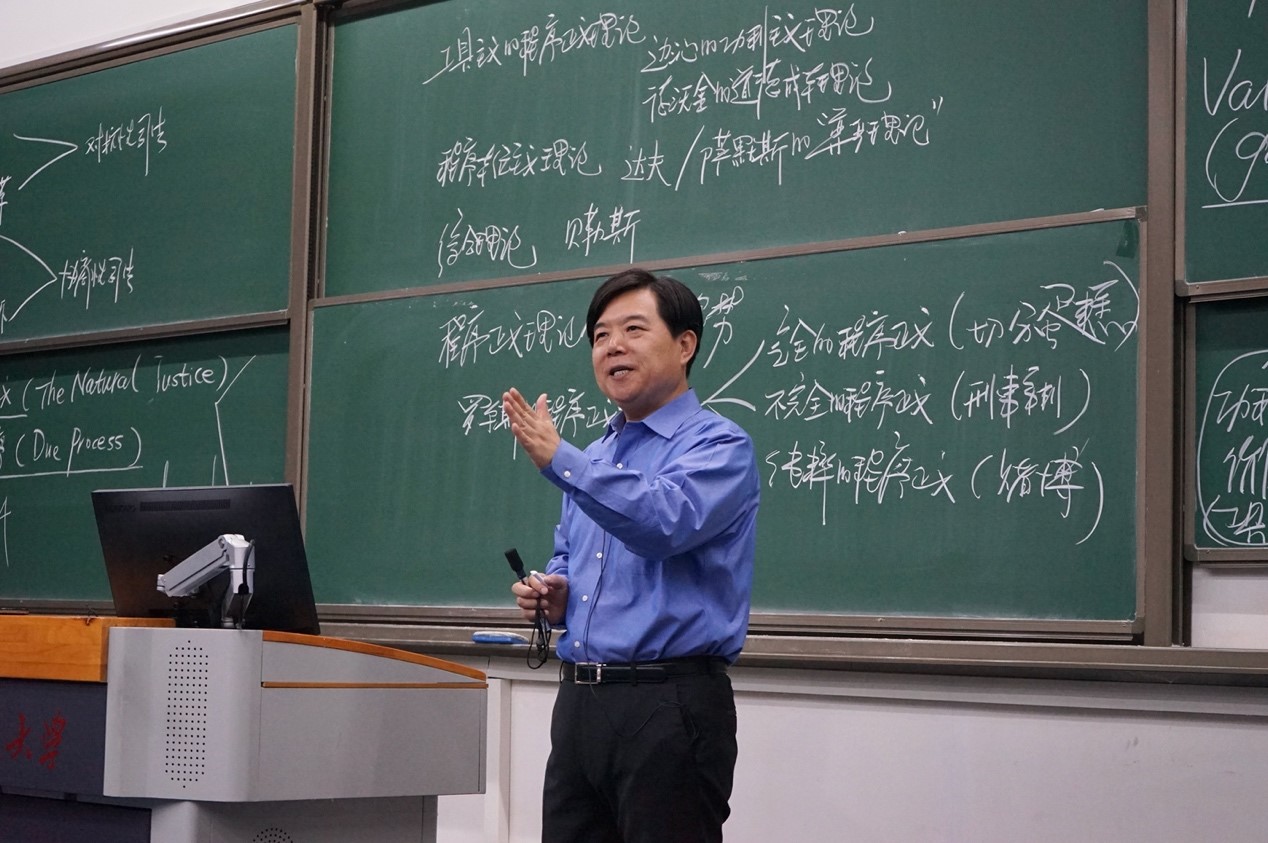Peking University, November 18, 2020: Professor Chen Ruihua of PKU Law School hosted the 195th session of Caizhai Lecture. During the lecture, Chen gave a comprehensive analysis of the contributions of procedural justice theory. In his analysis Chen employed perspectives from a number of disciplines, including political science, philosophy, economics and law. He also discussed the many challenges facing procedural justice theory and his outlook for its future developments.

Chen Ruihua delivers a lecture
In the beginning of the lecture, Chen gave the definition of procedural justice drawing on recent news stories for real-life examples. Procedural justice has dual attributes, consisting of both utilitarian and intrinsic values. This is to say that procedural justice is both a means to obtain substantive justice as well as ensuring just outcome, protecting human dignity, moral integrity and subjectivity. The core elements of procedural justice are participation, neutrality, reciprocity, rationality, information, timeliness, and finality. Procedural justice is the process of determining individuals’ personal interests and well-being, the weight of which are measured by the degree to which they have been deprived.
Chen went on to point out one specific challenge faced by theories of procedural justice, that is the “Makes No Difference” controversy. Instrumentalist theories of procedural justice argue that, as procedural justice serves to achieve justice of outcome it cannot be truly independent. On the other hand, the ontological approach for procedural justice posits that procedural justice is independent as its aim is to allow people to choose their own outcomes while preserving basic human dignity. The synthesis theory, serves as a compromise between the two, positing that procedural justice has both dependent and independent characteristics.
Francis Bacon states in his essay that a corrupt judge, who lacks dignity, is the capital remover of landmarks — “One foul sentence doth more hurt, than many foul examples.” Bacon’s essay leaves us with the idea that perversion of justice poisons the very source of moral life. In the lecture, Chen introduced China’s traditional judicial system. While it upholds the values of adversarial justice and adversarial procedural justice, it is ultimately an incomplete form of procedural justice. Through years of reform and refinement, China has constructed consultative justice and consultative procedural justice, which guarantees both parties’ right to participation, relinquishment, and conciliation.
At the end of the lecture, Chen discussed negotiation in procedural justice with the audience. He gave detailed answers to questions pertaining to matters of high compensation for criminal settlements, illegally obtained evidence, and how the excessive pursuit of procedural justice can lead to criminal facts being overlooked.
Written by: Qiu Kanghua
Edited by: Zhou Yijing, Jacob Tomkins
Source: PKU News (Chinese)